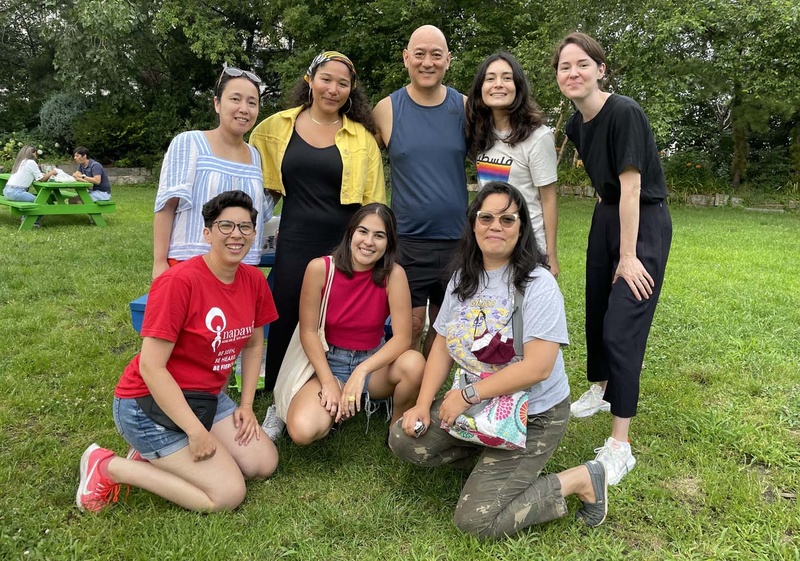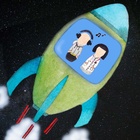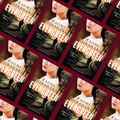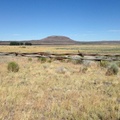Emily Akpan is a Black-Nikkei activist living in Brooklyn, New York. She has been active in many social justice struggles, including Tsuru for Solidarity and New York Day of Remembrance. In March 2022, she was kind enough to take time to answer some questions for Discover Nikkei’s Inspire Forward: Nikkei Heroes Under 30 series. Her story is inspiring and provides insights and help for aspiring activists.
* * * * *
Tamiko Nimura (TN): Congratulations on being selected as a “Nikkei hero”! How do you feel about being selected?
Emily Akpan (EA): Thank you so much! I feel very grateful to be selected as a “Nikkei hero.” This feels like a really special moment to reflect on and honor the organizing, community and voice I’ve grown into (and am still growing into) over the last few years.
TN: How would you describe your family background? Where did you grow up?
EA: My mother is a third-generation (sansei) Japanese American who grew up in Seattle. Our family, including my maternal grandparents, their parents and siblings were incarcerated in Minidoka. My grandmother was 12 years old when the US incarcerated her. When I ask her questions about Minidoka, she can still clearly recount memories and feelings. After spending a short time in Chicago following incarceration, her family moved back to Seattle permanently. My grandfather passed away when I was in elementary school. I wish I could ask him questions to learn more about this experience, but gratefully can hear stories from my grandma.
I always carry an image of my great-grandmothers in my diary. Grandma Nakamura wrote beautiful poetry reflecting on her existence in the US, far away from a home she once knew in Japan, and Grandma Fujikado was an Ikebana teacher, who established her own school. They both created beauty from the world around them. Their art reminds me that while life shifts and transitions, we still go on.
My father grew up in Nigeria and immigrated to New York City in ’87 at 18 years old. My grandmother, who is Jewish, was born in Russia, lived in Nigeria for some years, and then eventually found herself in NYC. My grandfather, who is Ibibio, resides in Nigeria’s capital Abuja. They met in Ukraine while my grandpa was studying and my grandma was visiting family.
I was born and grew up in Brooklyn, NY on Lenape land and continue to live here.
TN: What does “Nikkei” mean to you? Do you identify as “Nikkei”?
EA: I identify as Black-Nikkei, someone who is Black and Japanese. Black-Nikkei is a powerful term to me because it has helped me name and begin to build space and community for Black and Japanese people. We all have different backgrounds, but there is often an instant connection, empathy and a sense of family. No matter if there is a history of JA incarceration, we still navigate being Black and Asian in America, which creates a deep collective feeling.
TN: How do you participate (or have you participated) in your Nikkei community(ies)?
EA: I feel like there is a spirit of collectivism to the term Nikkei—an identity we can unify around to take action. I participate in Nikkei communities both locally in NYC and nationally. I am currently an organizer with Day of Remembrance New York Committee working with the committee to plan our annual NYDOR program, local events, and actions. In NYC, a major goal for the Nikkei community is to collaborate, build relationships and trust across generations. In the last year, I’ve been a part of intergenerational work including planning community lunches, Fred Korematsu Day and a “Unity” Obon (which unfortunately was ultimately canceled due to weather last year, but we hope to plan something this year!).
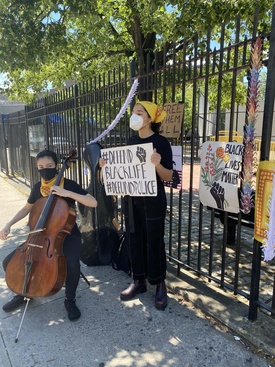
I was also a co-organizer for the Nikkei Abolition Study group—which I hope will be revamped!, organize for Black reparations with Tsuru for Solidarity, and recently have been begun building the National Nikkei Reparations Coalition—working with partners across the nation (like Nikkei Progressives, NCRR, JACL, and hopefully more orgs to come) to mobilize the Nikkei community to advocate for creating a pathway for Black reparations now.
Additionally, a huge desire of mine is to build community with other Black-Nikkeis. In late 2020, Regina Boone and I organized a gathering of Black-Nikkei to meet and share “virtual” space. We were joined by at least a dozen others, and spent a couple hours telling our stories. Regina and our other Black-Nikkei siblings, Aerica Shimizu Banks and Anthony Brown, decided to call ourselves the Black-Nikkei Collective. Over the next few years, my dream would be to continue to grow this space for us—to exhale and be together.
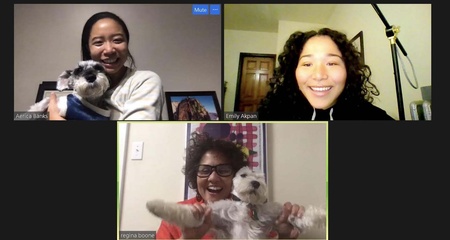
TN: Can you talk about the path to your activism?—how you came to it, any particular inspirations, challenges, obstacles, rewards?
EA: I came into activism by showing up and making time for relational meetings. A few years ago I knew nothing about the present NYC Nikkei organizing community, despite growing up in NYC. But once I found out, I kept being physically or virtually present, dependable, and offered to help. I also am always open to chatting with folks who share a vision for strengthened community and collective liberation. These conversations are where we can dream, get excited, and recharge when things feel lost or exhausting. Building trust and mutual, non-transactional relationships is an important pillar of organizing for me if I’m going to be doing this for decades to come.
Additionally, I find this work is most fulfilling when you know who you are working alongside, and build strong enough relationships to withstand the hard parts of organizing. There are so many opportunities for the generational trauma of perfectionism, silence and fracturing in Japanese American spaces to come up. I want to get to a place organizing with our community where we can be upfront and honest with each other, and that conflict means we care—that accountability helps fuel our collective growth.
TN: My two teen daughters are biracial and working through their own identity development. As a biracial Yonsei, who or what has been most helpful in developing your sense of identity?
EA: Talking with folks who share my experience as a Black-Nikkei has been extremely validating. I’ve been lucky to have conversations where I can be vulnerable about my experiences and process with folks who can directly empathize. I want to be in spaces where we uplift, comfort and challenge each other.
As a biracial person, it’s important to accept and love yourself for you are at your core (are you a kind person? Are you being authentic to yourself? etc). But it’s also important that we take the time to learn what our mixed identity means across spaces and contexts. For example, I’ve spent a lot of time listening to Black women through conversations, videos, writings etc., who are not mixed and/or light-skinned, talk about the harm mixed-race Black women can cause. I then take this information, and make sure that I self-examine and hold myself accountable.
It’s the same work that I am sure mixed-race Nikkei and white folks have to do as well. I hope that they have conversations with each other, laugh, cry and bond over shared experiences, process their identity together, discuss the power their proximity to whiteness holds, and ensure they are unlearning and not upholding white-Nikkei as the default in our community.
© 2022 Tamiko Nimura


